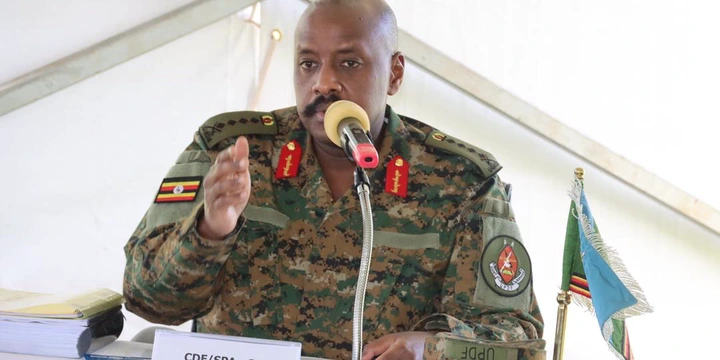Muhoozi’s Remarks Spark Debate on Uganda’s Resistance to Foreign Influence

General Muhoozi Kainerugaba, Uganda’s Chief of Defence Forces, has faced significant criticism and abuse after making direct remarks about the US Ambassador to Uganda.
As reported by NilePost, this criticism, especially from self-declared intellectuals and elites on social media, overlooks an important historical context.
The criticism seems to ignore the long history of Western interventionism in Africa, which has shaped much of the continent’s modern struggles.
The US has followed a policy of interventionism since its involvement in World War II.
Over the decades, both Republican and Democratic administrations have maintained the same goal: to ensure that other countries align with US economic and security interests.
This strategy has often involved influencing or interfering in the political and economic systems of foreign nations.
For Uganda, resisting foreign interference has been a significant part of its national identity.
President Yoweri Museveni’s leadership has been marked by a strong resistance to foreign manipulation, and this approach dates back to the early days of his presidency.
A CIA report from 1986 described Museveni as an "assertive nationalist," emphasizing his commitment to an independent foreign policy.
While the US recognized his pragmatic ability to engage with both Eastern and Western powers, they underestimated his determination to avoid foreign dependency.
Over the years, Uganda has become a regional powerhouse. The country has achieved middle-income status, hosts refugees instead of creating them, and plays an important role in regional security, especially in conflict zones like Somalia.
This strength and independence have come from a policy of resistance to foreign interference, which many critics of General Muhoozi’s remarks fail to acknowledge.
Muhoozi’s comments reflect Uganda’s broader desire for sovereignty and self-determination, something often overshadowed by Western powers.



0 Comments